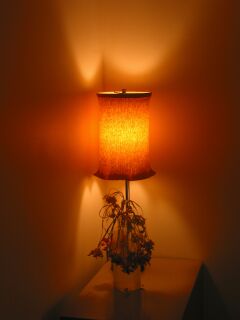March 11, 2005
Lantern Light

My daytime internet connection has been intermittent, then nonexistant for most of the week. Since we've had so much snow, I had a slew of cancellations during which to pursue my little hobby, but sadly, have been out of connection with the expanded universe.
It was not even two years ago, when I twiddled my thumbs waiting for a dial-up connection and fancied myself, Captain Video . Now look what I've come to expect. Which brings me to my point.
I just heard about Engineers Without Borders from friends who have a son who works with them. The organization models itself after Doctors Without Borders, and, I see from their website, that they have many projects all over the world. Fabulous idea, opening the potential for much more, Dentists Without Borders, Farmers Without Borders, Plumbers Without Borders, Investment Bankers Without Borders. Oops, it looks like Margaret Atwood had this idea well before I did. That's not the only one either.
Here's the project their son is working on. In many third world countries, when evening falls, there is no light, or just one dim, kerosene lantern for the entire household. The simple lack of adequate light with which to extend the day- which we so take for granted - is extremely limiting. If a child is fortunate enough to attend school, reading and homework are arduous by the lantern light. In addition, according to the World Health Organization, the use of kerosene lanterns and stoves is a leading cause of death in the third world as a result of serious burns and poisonous fumes.
Engineers Without Borders has been working to find a way to provide brighter light at the same, or lower cost than kerosene. They have developed a rechargable battery which powers a bright light, currently being tested in Kenya. Students bring the family battery to school with them and recharge it while they are in class. Thus the whole family has light after dark, prolonging the productive hours of the day for everyone. The student can read and study in the evening, and there is great incentive for families to send children to school in order to recharge the batteries. All around nifty
As I wrote this, I realized that there are a number of organizations working on this problem. The folks at Design That Matters are doing a similar project in West Africa. Their other innovative designs include condom vending machines for anonymous purchase in AIDs afflicted Muslim countries, and peeling and shelling machines for agricultural products.
And here I am, complaining about my internet connection and hunting moire. Get a life, Dakota.
Photo note: a little inadequate lighting along with some really inadequate tulips which I found in my archives.
Posted by Dakota at March 11, 2005 06:40 AM